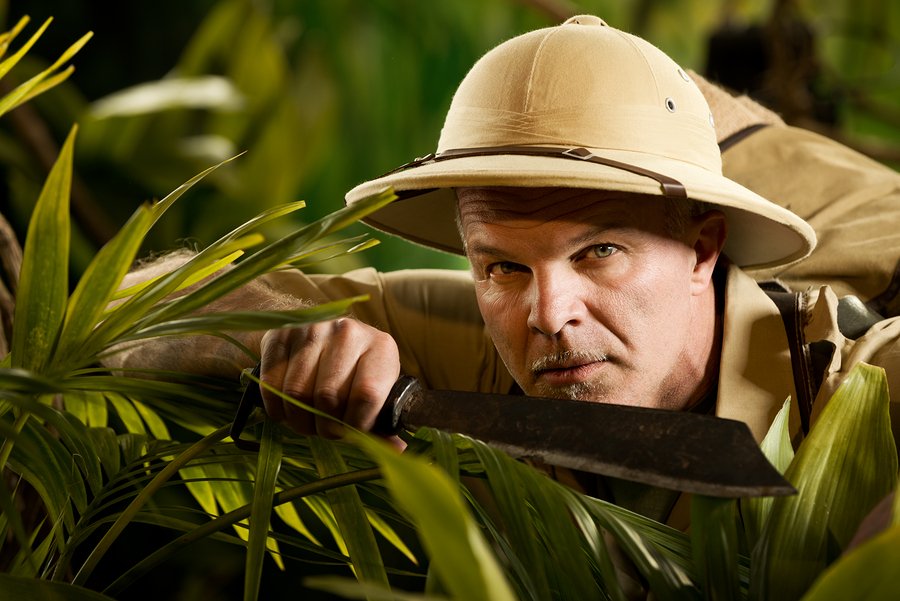Wilderness Survival Skills
One of the most important - and most frequently overlooked - aspects of planning outdoor expeditions is to ensure that you have sufficient training in survival skills to give you the maximum chance of maintaining your well-being in potentially dangerous or even life threatening situations. Survival skills are essentially ways to ensure that all your basic needs - food, water, shelter, safety, and warmth are available to you when you need them. Many people regularly plan hiking, trekking or mountaineering expeditions, but few take the trouble to educate themselves about even the most crucial of surviving skills.

Wilderness survival can be one of the most challenging adventures of a lifetime. Being in the wild and with nature can be a profound experience. There can be a great time to be had when engaging in wilderness adventure. However, things in the wilderness may not be just about sightseeing, exploration, and fun. If one desires to venture the wild and to keep alive staying there, he should know wilderness survival skills.
For the general nature enthusiast, basic survival skills are included here to initiate an understanding of what needs to occur in a wilderness emergency. Keep in mind that YOU MUST REMAIN CALM when implementing these survival skills. A clear head will allow you to implement and plan for survival and rescue.
FOOD/WATER-
The need for water is even more urgent than that for food. In a forest, water can be procured from various plants even if you cannot find a stream or rainwater pool. For instance, green bamboo, if cut properly, can release a lot of clean, drinkable water. Several other trees and plants contain water and this should be researched before venturing into such areas.
In deserts, damp sand indicates nearby water and so does vegetation. Generally, if you obtain water from a stream or river, you may need to purify it before drinking. One way is to boil it over a fire, and if that is not possible, then you can use water purification tablets. Never, ever use blood, alcohol, urine or seawater to quench your thirst, no matter how thirsty you are - these substances actually cause your body to lose its remaining fluids even faster, and blood and urine may contain harmful substances.
An individual can survive up to three days without water and without food up to three weeks, although don't plan for this. Always pack extra food bars high in carbs. Drink water in the cool of the evening. Collect water from rain in your emergency blanket. Boil water minimally for 10 minutes, if you can. Seek water out at all times.
SHELTER – Another crucial wilderness survival skill is to find shelter from extreme weather conditions or from wild animals. In a forest, you can climb a large, leafy tree to protect you from dangerous animals or excessive heat. In extreme cold, you must know how to build a snow shelter. Igloos can keep you very warm, but require some skill to make. Snow tents combined with extra blankets are an easier option. Secondly, you must know how to kindle a fire in a cold environment. Keep waterproof matches with you along with a stout knife or other weapons to cut firewood.
Also, if you are well kitted, commercial trash bag with a hole cut out for your head is useful in protecting you from the elements. Always keep the closest layer to your body dry to insulate you from the elements. If you are stranded, find a quick natural shelter and wrap yourself in an emergency blanket.
FIRE- It can provide warmth, keep predators away, purify water, cook food and signal rescuers. The best source for a fire is a flint metal match with a wooden handle and a scraper; for tinder use cotton balls soaked in petroleum and stored in waterproof containers. Sort your firewood in a tepee form and place your emergency blanket behind you to reflect the heat.
SIGNALING- With a whistle and a mirror. A whistle can carry further than a yell and a mirror can reflect up to 20 miles. A triangle of fires is a distress signal. Create smoke during the day to show distress. Spell out S.O.S. with organic materials.
FIRST AID KIT- Always carry a basic one.
Other Survival Skills
Survival Skill #1: Grizzly Bear Attack
No pepper spray? If a grizzly bear is attacking do not RUN. Immediately lay down on the ground face down, spread eagle and protect your neck and heart.
Survival Skill #2: Mountain Lion Attack
If the mountain lion has not attacked look tall and yell. DO NOT RUN. If it attacks, fight for your life using pepper spray, knife or anything you can find to gouge its eyes. Never hike alone.
Survival Skill #3: Backcountry thunderstorm
Get out of your tent. It is safer to be crouched down on your sleeping pad then in your tent which can expose you to electrical ground currents. Also, keep yourself distanced from other members in the group.
Survival Skill #4: Caught in an avalanche?
Try to keep an arm above the snow level to show visibility. If not possible, keep your hands near your mouth to create an air pocket. Spit outside of your mouth to tell which direction you are facing.
Survival Skill #5: Lost
Stay put. Despite popular beliefs do not follow streams. They usually lead to waterfalls, not civilization.
Survival skills combined with survival gear can ensure a safe and enjoyable wilderness experience.